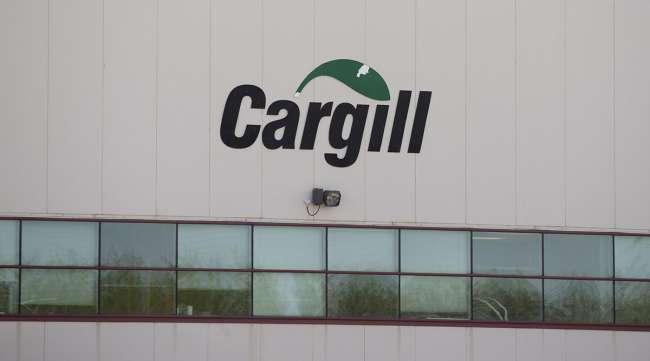Bloomberg News
Cargill to Cut Thousands of Jobs After Profits Shrink

[Stay on top of transportation news: Get TTNews in your inbox.]
Cargill Inc. is cutting thousands of jobs globally after the largest privately held company in the U.S. missed profit targets.
The Minneapolis-based firm, the world’s largest agricultural commodities trader, will cut about 5% of its 164,000-strong workforce as part of its 2030 strategy, according to an internal memo seen by Bloomberg. The reductions won’t affect its executive team, but will impact a number of next-level senior leaders, according to people familiar with the matter, who asked not to be identified discussing internal matters.
Cargill ranks No. 18 on the Transport Topics list of agriculture and food processing carriers.
Cargill and crop-trading rivals, such as Bunge Global SA and Archer-Daniels-Midland Co., have seen earnings shrink after bumper crops sent corn and soybean prices tumbling. For Cargill, the squeeze has been compounded by the smallest U.S. cattle herd in seven decades. The company has spent much of the past decade turning itself into the third-largest U.S. beef processor.
RELATED: Cargill Revenue Down as Trader Struggles With Profit Targets
“The majority of these reductions will take place this year,” CEO Brian Sikes said in the memo. “They’ll focus on streamlining our organizational structure by removing layers, expanding the scope and responsibilities of our managers, and reducing duplication of work.”
Want more news? Listen to today's daily briefing above or go here for more info
Cargill had already told employees earlier this year that it would reduce the number of business units to three from five after less than one-third of its businesses reached their earnings goals in fiscal 2024. It also cut about 200 tech jobs in various locations.
The company’s profits fell to $2.48 billion in the year through the end of May, the lowest since 2015-16, Bloomberg Opinion’s Javier Blas reported. That’s less than half the record net profit of about $6.7 billion it made in the 2021-22 fiscal year.
“We have laid out a clear plan to evolve and strengthen our portfolio to take advantage of compelling trends in front of us, maximize our competitiveness, and, above all, continue to deliver for our customers,” Cargill said in a statement to Bloomberg.
Sikes, 56, took over as CEO at the start of last year, just as his predecessor’s bet on beef had started to sour amid severe pressure on margins. There’s still no relief in sight for that part of Cargill’s business. Donnie King, the boss of rival meat packer Tyson Foods, said earlier this month his company had yet to see signs that ranchers intend to rebuild herds.
“We have to simplify and streamline our operations, improve the speed and efficiency of our work, more competitively manage our costs and capital, and respond to asks from you and our customers to be an easier company to work for and with,” Sikes said in the memo. “Cargill can be the world’s most consequential food and agriculture company. And before the end of this decade, we will.”




